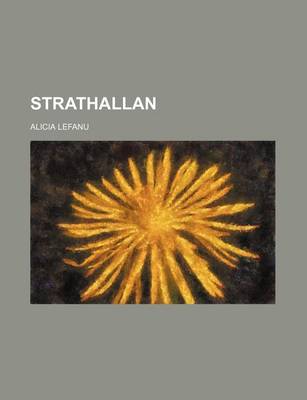Chawton House Library: Women's Novels
1 primary work
Book 5
Strathallan (1816) is at once a conventional and subversive romance. LeFanu is informed by the work of earlier eighteenth-century society satirists, such as Frances Brooke and Frances Burney, yet at the same time her interests coincide with those of her more immediate contemporaries, Scott and Austen. The novel addresses central themes of adultery, obsession and inheritance. It follows the fortunes of Matilda Melbourne who displays virtue, delicacy and an unwavering commitment to the sometimes ruthless demands of parental authority. LeFanu's implicit referencing of Frances Sheridan's examination of similar obligations in Memoirs of Miss Sidney Bidulph (1761), places the novel in the context of serious ongoing debates on female education and marriage. Matilda's friend and confidante, Arbella Ferrars, subverts the expectations of such an idealized femininity and is the principal means through which the sardonic and often wickedly wry observations on provincial pretensions are expressed. For Arabella's disruptive brand of coquetry, LeFanu is indebted to Frances Brooke's History of Lady Julia Mandeville and Emily Montague.
Notwithstanding the particular merits of this work, its intertextual relation both to earlier fictions and prevalent trends presents an intriguing basis upon which to examine the extent of the woman writer's strategic engagement with the literary market.
Notwithstanding the particular merits of this work, its intertextual relation both to earlier fictions and prevalent trends presents an intriguing basis upon which to examine the extent of the woman writer's strategic engagement with the literary market.
